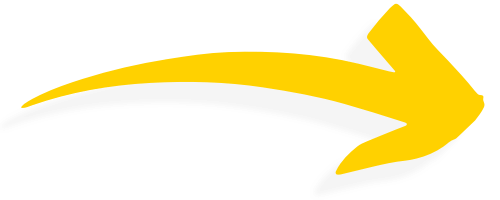What Are Technical Skills and How to Incorporate Them Into Your Resume

Interested in a Career in Cybersecurity?
Let us help you learn the skills you need to land the jobs you want in our live, online training classes.

Sometimes referred to as hard skills. Technical skills are specialized knowledge, abilities, and/or techniques required to perform specific tasks.
• Usually require special training, education, or certification.
• Use specific tools and programs.
• Usually more tangible or visible/demonstrable than soft skills.
Technical skills help you stand out! Employers value and need your skills because it not only helps them achieve results, but it saves them money [on training] to fill a skills gap and increases customer satisfaction.
Technical acumen can help you achieve higher pay, provide more opportunities - especially if you are certified- for jobs or promotions, and could lead to training or leadership positions.
When you have these skills, you need to practice speaking about them and presenting them with confidence and real examples with positive results. Show your skills and value. Demonstrate your specialty.
Use this sample list of technical skills to help you identify what technical skills you have.
Operating systems (iOS, XOS, Windows, Linux)
- Programming Languages (Coding - HTML, CSS, Java, JavaScript, Python)
- Development: Software Development (Debugging, writing languages, APIs, cloud computing); Web Development - (Frontend Dev, Backend Dev); Full Stack Developer - generalist; dev both client and server software (front and back); Get certified
- Content Management Systems - CMS (Wix, WordPress, Squarespace, Drupal, Joomla, TYPO3, Magento, GIT/Github)
- Project Management (Monday.com, Asana, MS Teams, MS Planner, Slack, Trello); Get certified: PMP, Agile Cert. Practitioner - ACP, Cert. Associate in Proj. Mgmt - CAPM
- Productivity Software (O365, Google Workplace, Apple Work, Zoho) *okay to specify programs, especially Excel
- Technical Writing - ability to write SOPs for technology or operating manuals
- Artificial Intelligence (LLM)
- Cybersecurity (Security+, CISM, CEH) - Vulnerability scanning tools: Nexpose, Qualys, Tenable Nessus, Burp Suite; SIEM tools: Splunk LogRhythm, QRadar, Sentinel, LogPoint, McAfee, ArcSight, SolarWinds; NexGen firewalls: Fortinet, Forcepoint, Palo Alto, Juniper, Cisco, SonicWall; Get certified
- Social Media (LinkedIn, Sprout Social, Google Analytics, CMS, Adobe Photoshop)
- Cloud computing (AWS, MS Azure, Google Cloud Platform, IMB Cloud, Oracle Cloud, Vultr)
- Accounting Software (QuickBooks, Paychex, Gusto, Sage); Get certified
- Design Software (Adobe Illustrator, InDesign, Photoshop Coreldraw, Atlassian, GitLab Pajamas, Canva, Sketch, Ceros, Creatopy)
- Customer Relationship Management Systems - CRM (HubSpot, Salesforce, ZenDesk, Microsoft Dynamics, Freshworks, Deskera, Monday.com, Zoho CRM, Creatio, Oracle Netsuite, Pipedrive, Bitrix24, Keap)
- Video software (Adobe Premiere Pro, Adobe Premiere Elements, Cyberlink, Wondershare Filmorea, DaVinci Resolve, Apple Final Cut Pro, VideoProc, Movavi, Clipify, Corel Video Studio Ultimate)
- Search Engine Optimization - SEO (Google Search Console, Ahrefs, SEMRush, KWFinder, Moz Pro, Ubersuggest)
- Google Analytics
- Marketing CRM (ProofHub, Todoist, HubSpot, LinkedIn, Salesmate, Hootsuite, Mailchimp, Whatagraph, Creatopy, Pixpa, Crowdfire, NapoleanCat, Buffer
- Math
- Research/Research tools
On your resume, identify the most relevant skills required for the role you are applying for then...
Make your resume "achievement focused".
- Always describe how you used your skills to positively impact the business/company.
- Keep it short and concise on your resume. You can expand on your proficiency or the example(s) in a cover letter or during an interview.
- Quantify, use numbers, to show or explain the achievement.
- Time, money, more clients, speed, productivity, etc.
Computer Coach offers internationally recognized IT, Project Management, and Business certification training that leads to job security, higher incomes, and promotion opportunities. Classes meet in instructor-led or live online training formats. Both full-time and part-time programs are available. If you are looking for computer training classes reach out to Computer Coach and let one of our Certified Career Coaches discuss which training programs or certifications can help you.
CHECK OUT THESE OTHER RESOURCES
ABOUT COMPUTER COACH

Computer Coach is a trusted and experienced technology training and career development center, providing comprehensive and customized training solutions to empower individuals and companies to succeed in the rapidly evolving tech industry. With a focus on both hard skills and soft skills development, our personalized approach sets us apart in the market, making us the preferred training partner for tech talent nationwide. www.ComputerCoach.com
corporate headquarters
5005 N. Hesperides Street
Tampa, Florida 33614
(813) 947-0552

Please note: Not all courses on our site are under the purview of the Florida Commission for Independent Education (CIE).
USeful Information
USeful Information
Follow & Connect with Us
Copyright © Your Company. All Rights Reserved.





